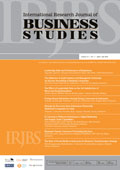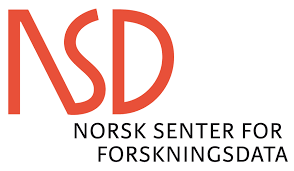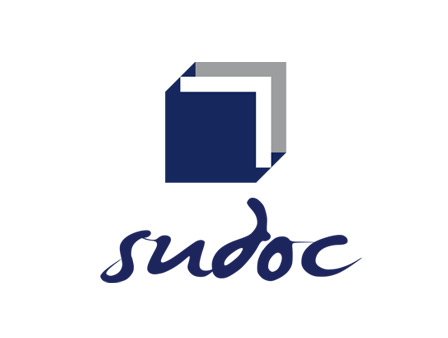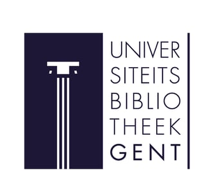Article Metrics |
|
|
The Factors Affecting Cooperation and the Moderating Effect of Technological Turbulence
Abstract
This present study examines the effect of technological turbulence in driving cooperation, the role of non-economic satisfaction in mediating between focal constructs of relationship marketing (RM) with cooperation, and the effect of interpersonal commitment on interorganizational commitment. The findings show that high technological turbulence dampens the positive relationship of two focal constructs of RM, non-economic satisfaction mediates focal constructs of RM and cooperation, and interpersonal commitment influences interorganizational commitment. The study uses empirical data from business-to-business (B2B) ICT resellers in Indonesia to test the hypotheses developed. A structured questionnaire via an online platform is used as a research instrument with one hundred and one companies participating.
 https://doi.org/10.21632/irjbs.14.2.171-186
https://doi.org/10.21632/irjbs.14.2.171-186
Full Text:
References
Anderson, J.C. and Narus, J.A. (1990). A model of distributor firm and manufacturer firm working partnerships. Journal of Marketing, 54 (1), 42-58.
Chen, J., Neubaum, D.O., Reilly, R.R. and Lynn, G.S. (2015). The relationship between team autonomy and new product development performance under different levels of technological turbulence. Journal of Operations Management, 33, 83-96.
Christensen, C.M. (1993). The rigid disk drive industry: A history of commercial and technological turbulence. Business History Review, 67(4), 531-588.
Crosby, L.A., Evans, K.R. and Cowles, D. (1990). Relationship quality in services selling: an interpersonal influence perspective. Journal of Marketing, 54(3), 68-81.
Dwyer, F.R., Schurr, P.H. and Oh, S. (1987). Developing buyer-seller relationships. Journal of Marketing, 51(2), 11-27.
Farrelly, F.J. and Quester, P.G. (2005). Examining important relationship quality constructs of the focal sponsorship exchange. Industrial Marketing Management, 34(3), 211-219.
Ferro, Carlos, Carmen Padin, Göran Svensson, and Janice Payan. (2016). Trust and commitment as mediators between economic and non-economic satisfaction in manufacturer-supplier relationships. Journal of Business & Industrial Marketing, 31(1), 13-23.
Garbarino, E. and Johnson, M.S. (1999). The different roles of satisfaction, trust, and commitment in customer relationships. Journal of Marketing, 63(2), 70-87.
Geyskens, I. and Steenkamp, J.B.E.. (2000). Economic and social satisfaction: measurement and relevance to marketing channel relationships. Journal of Retailing, 76(1), 11-32.
Geyskens, Inge, Jan-Benedict E. M. Steenkamp, and Nirmalya Kumar (1999). A Meta-Analysis of Satisfaction in Marketing
Channel Relationships. Journal of Marketing Research, 36(20), 223-238.
Hair, J.F., Black, W.C., Babin, B.J. and Anderson, R.E. (2014). Multivariate Data Analysis (7th ed.). Pearson Education Limited.
Hogevold, N., Svensson, G. & Otero-Neira, C. (2020). Trust and commitment as mediators between economic and noneconomic
satisfaction in business relationships: a sales perspective. Journal of Business & Industrial Marketing.
Jaworski, Bernard J., and Ajay K. Kohli (1993). Market Orientation: Antecedents and Consequences. Journal of Marketing, 57(3), 53-70.
Matanda, M.J. and Freeman, S. (2009). Effect of perceived environmental uncertainty on exporter–importer inter-organisational
relationships and export performance improvement. International Business Review, 18(1), 89-107.
Mavondo, Felix T., and Elaine M. Rodrigo (2001). The effect of relationship dimensions on interpersonal and interorganizational
commitment in organizations conducting business between Australia and China. Journal of Business Research, 52, 111- 121.
Moorman, C., Zaltman, G. and Deshpande, R. (1992). Relationships between providers and users of market research: The
dynamics of trust within and between organizations. Journal of Marketing Research, 29(3), 314-328.
Morgan, Robert M. , and Shelby D. Hunt (1994). The Commitment-Trust Theory of Relationship Marketing. Journal of Marketing, 58(3), 20-38.
Mungra, Y. and Yadav, P.K. (2019). The mediating effect of satisfaction on trust-commitment and relational outcomes in manufacturer–supplier relationship. Journal of Business & Industrial Marketing, 35(2), 219-230.
Palmatier, R.W., Dant, R.P., Grewal, D. and Evans, K.R. (2006). Factors influencing the effectiveness of relationship marketing: A meta-analysis. Journal of Marketing, 70(4), 136-153.
Pratono, A.H. (2018). Does firm performance increase with risk-taking behavior under information technological turbulence?
Empirical evidence from Indonesian SMEs. The Journal of Risk Finance, 19(4), 361-378.
Pesämaa, O., Pieper, T., Da Silva, R.V., Black, W.C. and Hair Jr, J.F. (2013). Trust and reciprocity in building inter-personal and inter-organizational commitment in small business co-operatives. Journal of Co-operative Organization and Management, 1(2), 81-92.
Phan, M.C., Styles, C.W. and Patterson, P.G. (2005). Relational competency’s role in Southeast Asia business partnerships.
Journal of Business Research, 58(2), 173-184.
Rodriguez, Ignacio Rodriguez del Bosque, Jesus Collado Agudo, and Hector San Martin Gutierrez (2006). Determinants of
economic and social satisfaction in manufacturer–distributor relationships. Industrial Marketing Management, 35, 666– 675.
Song, M., Droge, C., Hanvanich, S. and Calantone, R. (2005). Marketing and technology resource complementarity: An analysis
of their interaction effect in two environmental contexts. Strategic Management Journal, 26(3), 259-276.
Svensson, G., Mysen, T. and Payan, J. (2010). Balancing the sequential logic of quality constructs in manufacturing-supplier
relationships – Causes and outcomes. Journal of Business Research, 63(11), 1209-1214.
Terawatanavong, C., Whitwell, G.J., Widing, R.E. and O’Cass, A. (2011). Technological turbulence, supplier market orientation,
and buyer satisfaction. Journal of Business Research, 64(8), 911-918.
Tzempelikos, N. & Kooli, K. (2018). Moderating effects of environmental uncertainty on behavioural intentions in business
markets – a study across theoretical perspectives. Journal of Business & Industrial Marketing, 33(7), 1037-1051.
Visentin, M. and Scarpi, D. (2012). Determinants and mediators of the intention to upgrade the contract in buyer–seller
relationships. Industrial Marketing Management, 31(7), 1133-1141.
Wang, B., Childerhouse, P., Kang, Y., Huo, B. and Mathrani, S. (2016). Enablers of supply chain integration Interpersonal and
interorganizational relationship perspectives. Industrial Management & Data Systems, 116(4), 838-855.
Zaheer, Akbar, Bill McEvily, and Vincenzo Perrone (1998). Does Trust Matter? Exploring the Effects of Interorganizational and
Interpersonal Trust on Performance. Organization Science, 9(2), 141-159.
Copyright (c) 2022 INTERNATIONAL RESEARCH JOURNAL OF BUSINESS STUDIES
International Research Journal of Business Studies has been covered by the following services: | ||||||||||||||||||||||||
|



















